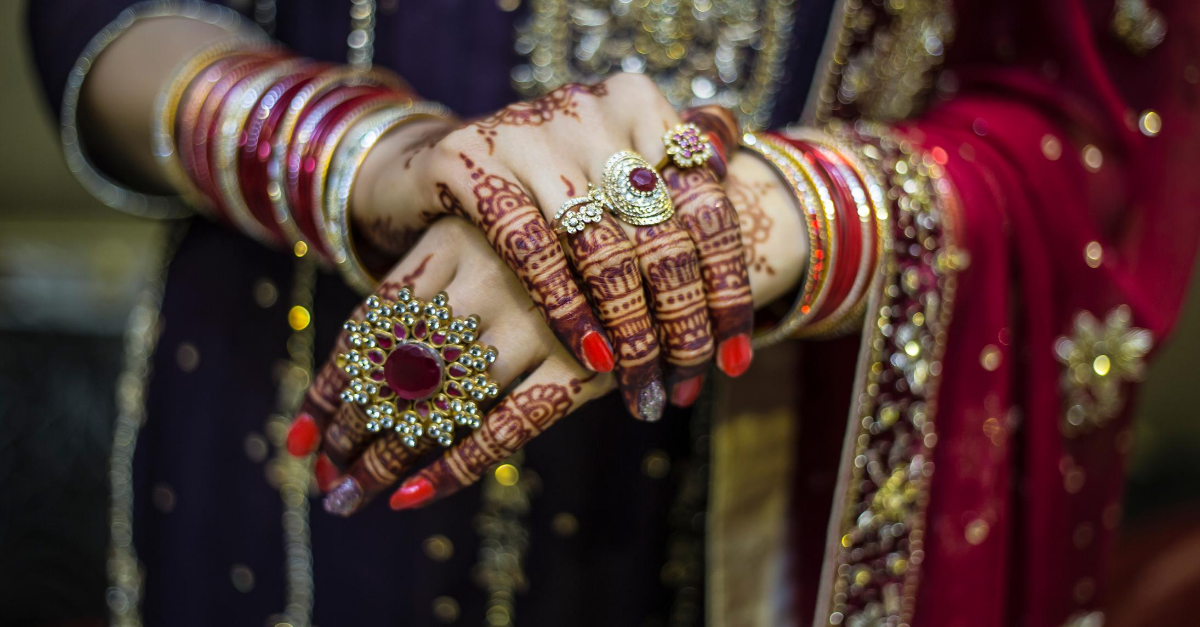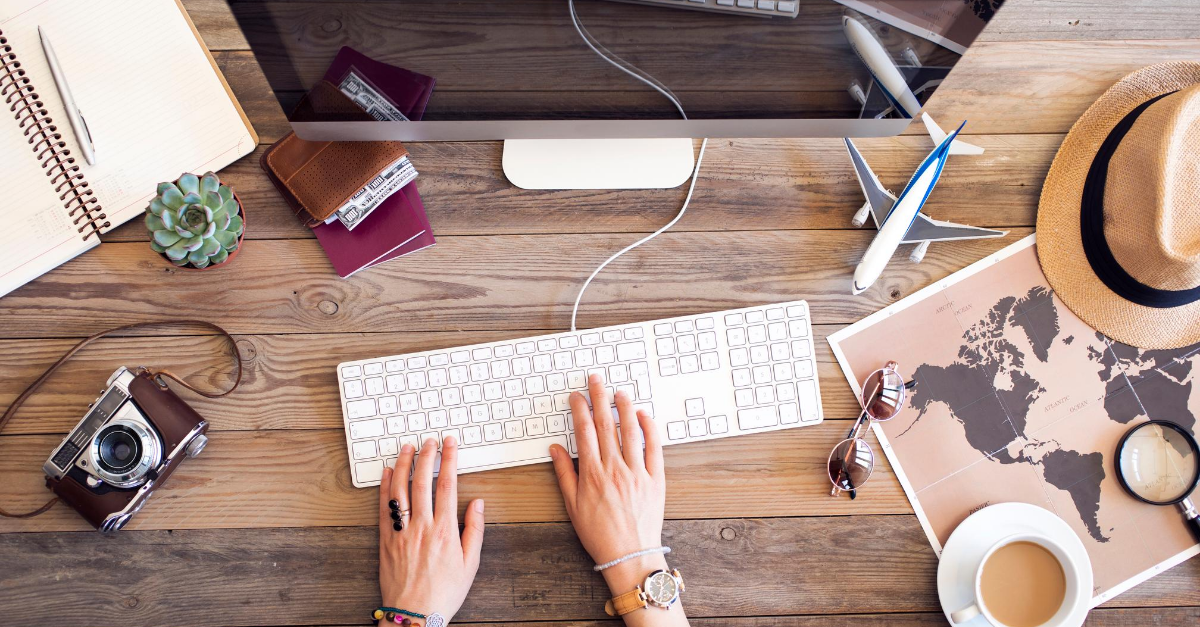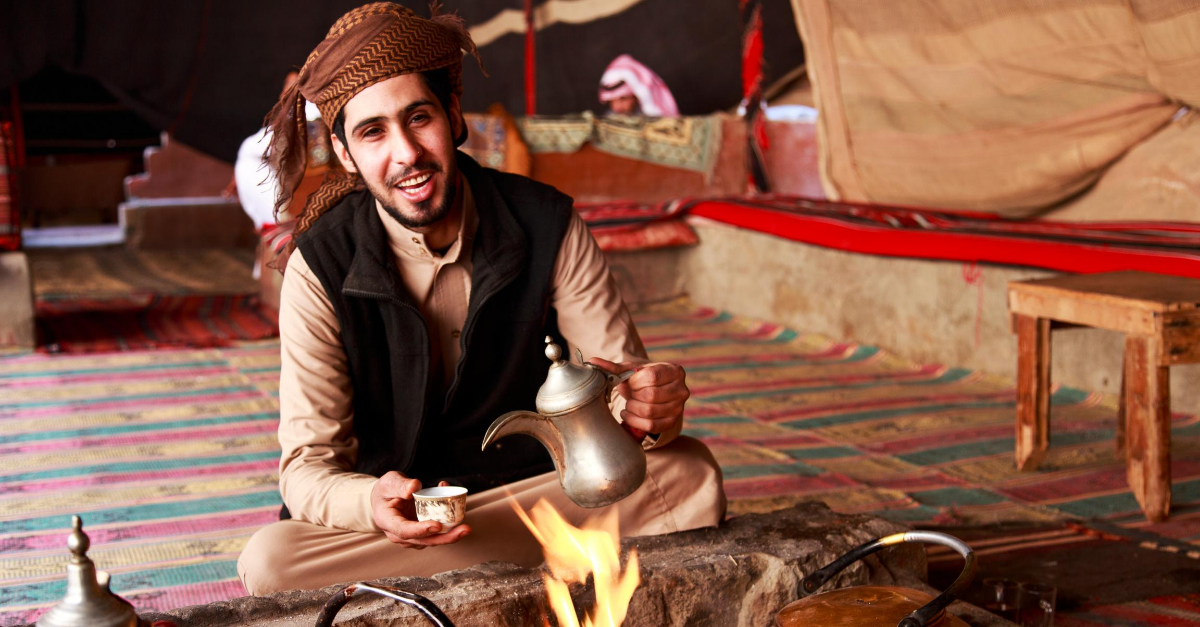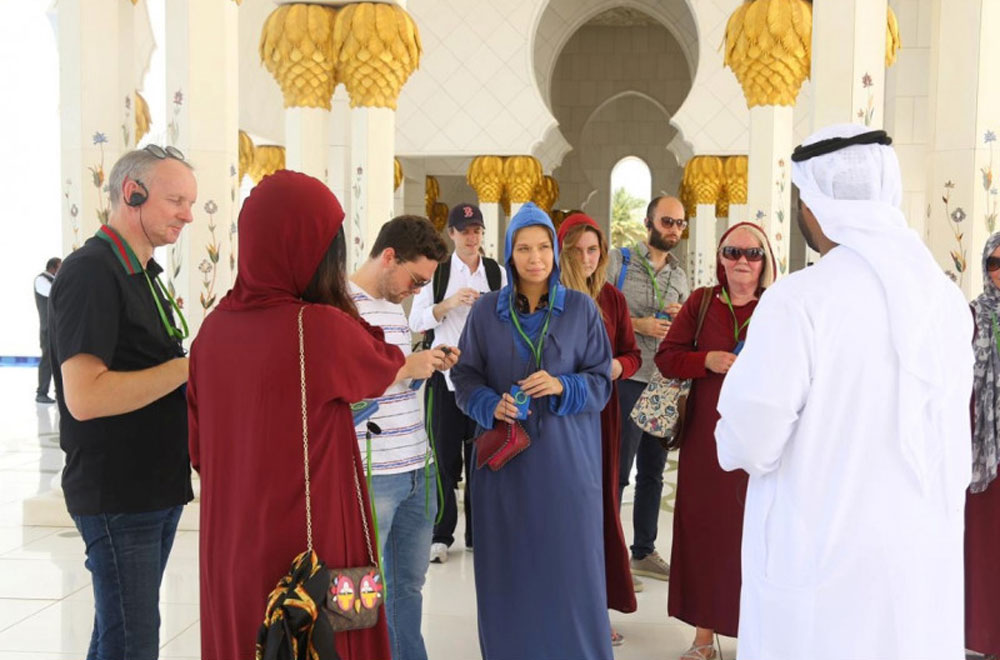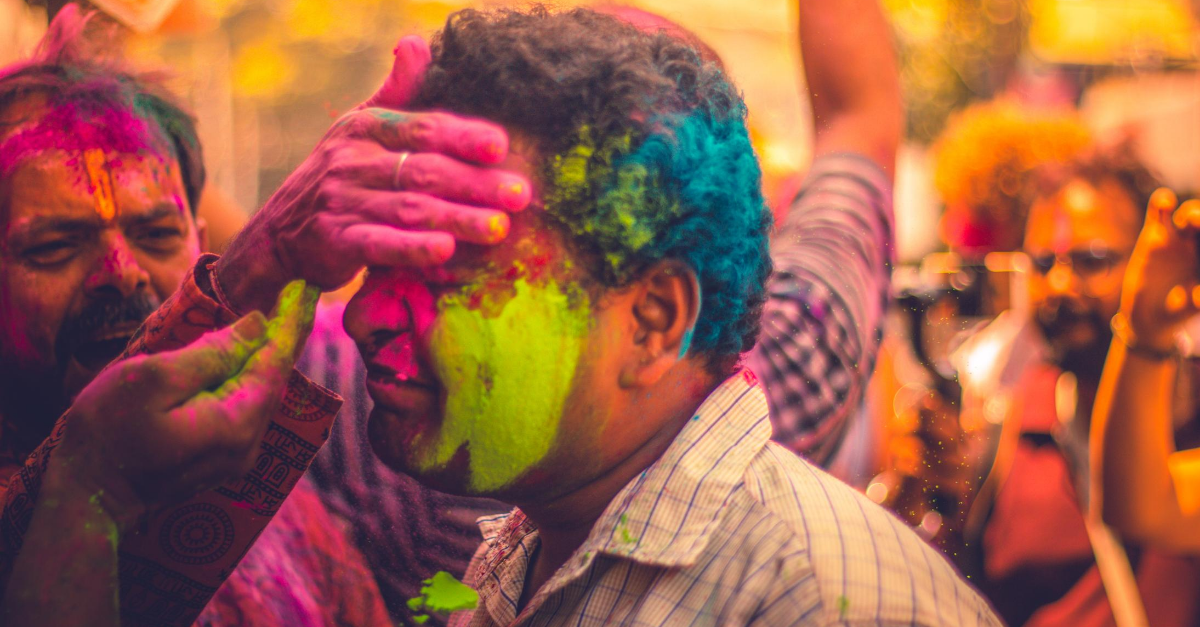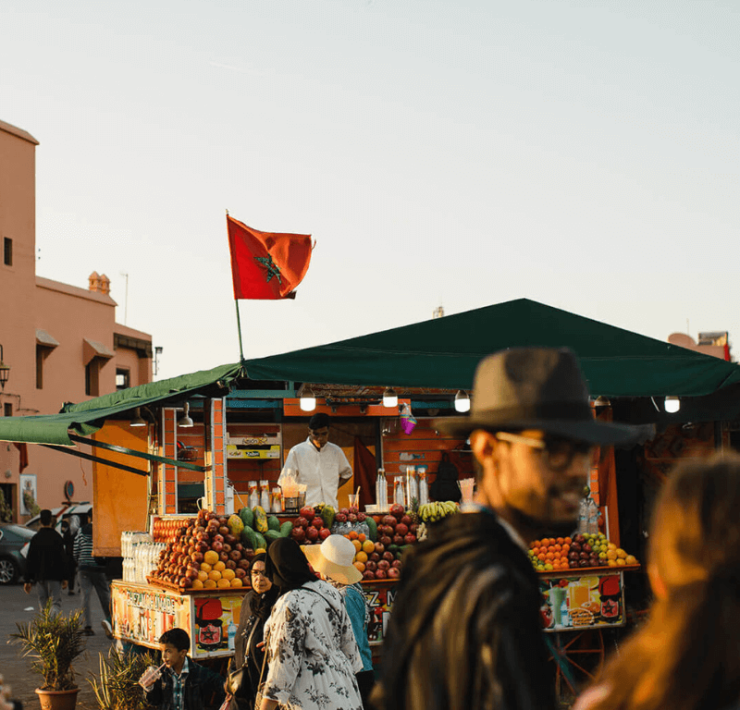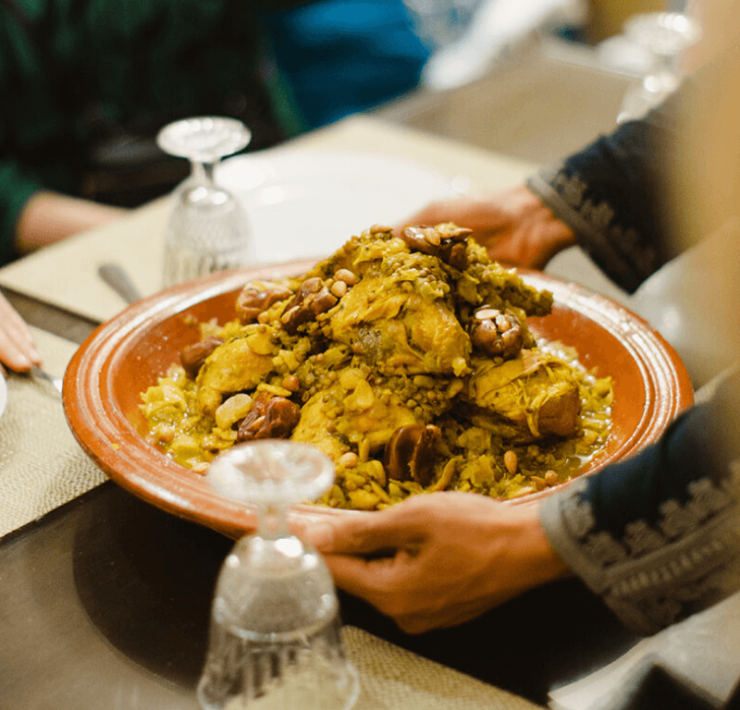The term ‘cultural awareness’ is thrown around a lot these days, but what does it really mean and why does it matter for travellers?
Culture constitutes a wide array of factors, from language, art, ways of dressing and food to behaviour, thought patterns, religious practices, social customs and traditions. Understanding and being open minded to these things can not only make you a better, more conscious traveller, but can also enhance your experience by allowing you to form deeper, more authentic relationships with local people.
But the line between respecting local cultures and perpetuating stereotypes is a fine one, and often sources that claim to speak with authority about what is culturally acceptable and authentic lack substance and nuance. We’ve put together this list of 5 things you can do before and during your travels to increase your cultural awareness, so that you can reduce your footprint as a traveller and enjoy deeper and more meaningful experiences.
Why learning about other cultures is the best way to change the world
1. Do your homework and learn the basics
Before travelling somewhere new, read up on the country’s social customs, behaviours and religious practices. Ensure you have at least a basic understanding of what is considered to be good and bad manners in order to avoid offending anyone. Google is a great place to start, as are the classic travel guide books like Lonely Planet, DK Eyewitness or Bradt. But if you can, try and read a variety of sources and avoid relying on just one so that you get a wide range of perspectives.
It’s also a great idea to learn a few basic words and phrases in the local language. This may well be necessary depending on where you’re travelling to, if foreign languages like English aren’t widely spoken. But even if you can get by with English or another foreign language, speaking a little of the local tongue can make a huge difference as it demonstrates a genuine commitment to understanding the country and its people. It’s a sign of respect and can help you build more authentic relationships with local people, which can deepen your experience and open up new opportunities.
2. Read content written by local authors
With the power of the internet and social media, it’s never been easier to see a foreign country through the eyes of its people. Following local bloggers and social media influencers means you’ll get an up to date view of life in that country that cuts through the stereotypes. Social media platforms like Instagram are particularly great for getting an insight into popular culture and the lives of younger generations of locals, which you may struggle to find in the traditional guide books.
Another important piece of advice is to be wary of taking cultural advice from western or non-local bloggers and travel influencers, unless you know they have spent a significant amount of time in the country and have a genuine connection to its cultures and its people.
Reading books by local authors is also a fantastic way to gain insight into local culture, society and political issues. Reading fiction that’s set in the country you’re visiting and written by a local author can bring history and politics to life, telling the human stories that are often forgotten in non-fiction books and news articles.
 Saudi travel influencer Hessa Al-Ajaji in Tabuk, Saudi Arabia
Saudi travel influencer Hessa Al-Ajaji in Tabuk, Saudi Arabia
3. Question what is ‘authentic’
Be wary of people talking about ‘authentic’ cultural experiences. This could be a travel influencer you follow on Instagram sharing pictures of when she rode a camel in the desert with Bedouins, or a tour guide offering an excursion or photo opportunity in an ‘authentic’ local village.
Now we’re not saying you should avoid these kinds of experiences altogether – after all, you can learn a lot from them and in many cases there’s an economic benefit for local people. But remember, there is no one ‘authentic’ cultural experience in any country, and of course, if you’re paying for an experience involving local people, make sure at least some of your money is going directly to the community.
If possible, try not to over-plan your trip and instead go with the flow. Seek out more organic and meaningful relationships with local people. Of course, this is easier said than done if you’re only visiting a country for a short time. But if you’re really looking for an authentic experience, the best way is to spend as time getting to know and giving back to local communities.
4. Think carefully about what to pack
Clothing is a big part of culture, particularly in conservative societies where people – in particular women – may dress more modestly than in the ‘west’. Even in countries where modest dress is neither expected nor the norm, some tourist (and especially religious) sites may require you to cover up.
Do your research ahead of time so you know what to pack and what to wear. If you’re not quite sure or you think you may need a variety of options, bring items like light layers and scarfs which you can carry with you and add and remove as needed.
If you’re travelling in the Middle East and North Africa, check out of guide on what to wear
 Tourists at the Sheikh Zayed mosque in Abu Dhabi (image: Emirates 247)
Tourists at the Sheikh Zayed mosque in Abu Dhabi (image: Emirates 247)
5. Keep an open mind
Although we’ve clearly advised you to read and learn as much as possible about the local culture before visiting a new country, it’s still important to keep an open mind. Culture is dynamic and fluid and it varies across time and space, so it’s important not to make assumptions that might limit your understanding and your experience of a place.
In any one country you’ll likely find a number of different cultures existing side by side and intertwining with one other through language, dialect, religion, behaviour, food… the list goes on. If you have a set idea in your mind of what a culture looks like, you’ll likely find evidence confirming what you think is true, but you might also miss out on other important and interesting aspects.
Finally, try not to assume, consciously or subconsciously, that your own culture is the best, or the only way. Stay open to what you can learn from other cultures and how you can apply this learning to your own behaviour to enhance your relationships with your family, friends and community back home.
If you found this useful, you might also like:
5 spectacular cultural sites in Iran
5 reasons why you should learn Arabic
6 social enterprises supporting local communities in the Middle East & North Africa
Subscribe to the Hump Day Newsletter to get the latest blog posts from Pink Jinn and insights into what’s going on in the Middle East and North Africa – delivered straight to your inbox on the first Wednesday of every month!
You’ll also get exclusive access to our Resource Bank and 10% off everything in our Etsy shop – The Souq ✨
The term ‘cultural awareness’ is thrown around a lot these days, but what does it really mean and why does it matter for travellers?
Culture constitutes a wide array of factors, from language, art, ways of dressing and food to behaviour, thought patterns, religious practices, social customs and traditions. Understanding and being open minded to these things can not only make you a better, more conscious traveller, but can also enhance your experience by allowing you to form deeper, more authentic relationships with local people.
But the line between respecting local cultures and perpetuating stereotypes is a fine one, and often sources that claim to speak with authority about what is culturally acceptable and authentic lack substance and nuance. We’ve put together this list of 5 things you can do before and during your travels to increase your cultural awareness, so that you can reduce your footprint as a traveller and enjoy deeper and more meaningful experiences.
Why learning about other cultures is the best way to change the world
1. Do your homework and learn the basics
Before travelling somewhere new, read up on the country’s social customs, behaviours and religious practices. Ensure you have at least a basic understanding of what is considered to be good and bad manners in order to avoid offending anyone. Google is a great place to start, as are the classic travel guide books like Lonely Planet, DK Eyewitness or Bradt. But if you can, try and read a variety of sources and avoid relying on just one so that you get a wide range of perspectives.
It’s also a great idea to learn a few basic words and phrases in the local language. This may well be necessary depending on where you’re travelling to, if foreign languages like English aren’t widely spoken. But even if you can get by with English or another foreign language, speaking a little of the local tongue can make a huge difference as it demonstrates a genuine commitment to understanding the country and its people. It’s a sign of respect and can help you build more authentic relationships with local people, which can deepen your experience and open up new opportunities.
2. Read content written by local authors
With the power of the internet and social media, it’s never been easier to see a foreign country through the eyes of its people. Following local bloggers and social media influencers means you’ll get an up to date view of life in that country that cuts through the stereotypes. Social media platforms like Instagram are particularly great for getting an insight into popular culture and the lives of younger generations of locals, which you may struggle to find in the traditional guide books.
Another important piece of advice is to be wary of taking cultural advice from western or non-local bloggers and travel influencers, unless you know they have spent a significant amount of time in the country and have a genuine connection to its cultures and its people.
Reading books by local authors is also a fantastic way to gain insight into local culture, society and political issues. Reading fiction that’s set in the country you’re visiting and written by a local author can bring history and politics to life, telling the human stories that are often forgotten in non-fiction books and news articles.
 Saudi travel influencer Hessa Al-Ajaji in Tabuk, Saudi Arabia
Saudi travel influencer Hessa Al-Ajaji in Tabuk, Saudi Arabia
3. Question what is ‘authentic’
Be wary of people talking about ‘authentic’ cultural experiences. This could be a travel influencer you follow on Instagram sharing pictures of when she rode a camel in the desert with Bedouins, or a tour guide offering an excursion or photo opportunity in an ‘authentic’ local village.
Now we’re not saying you should avoid these kinds of experiences altogether – after all, you can learn a lot from them and in many cases there’s an economic benefit for local people. But remember, there is no one ‘authentic’ cultural experience in any country, and of course, if you’re paying for an experience involving local people, make sure at least some of your money is going directly to the community.
If possible, try not to over-plan your trip and instead go with the flow. Seek out more organic and meaningful relationships with local people. Of course, this is easier said than done if you’re only visiting a country for a short time. But if you’re really looking for an authentic experience, the best way is to spend as time getting to know and giving back to local communities.
4. Think carefully about what to pack
Clothing is a big part of culture, particularly in conservative societies where people – in particular women – may dress more modestly than in the ‘west’. Even in countries where modest dress is neither expected nor the norm, some tourist (and especially religious) sites may require you to cover up.
Do your research ahead of time so you know what to pack and what to wear. If you’re not quite sure or you think you may need a variety of options, bring items like light layers and scarfs which you can carry with you and add and remove as needed.
If you’re travelling in the Middle East and North Africa, check out of guide on what to wear
 Tourists at the Sheikh Zayed mosque in Abu Dhabi (image: Emirates 247)
Tourists at the Sheikh Zayed mosque in Abu Dhabi (image: Emirates 247)
5. Keep an open mind
Although we’ve clearly advised you to read and learn as much as possible about the local culture before visiting a new country, it’s still important to keep an open mind. Culture is dynamic and fluid and it varies across time and space, so it’s important not to make assumptions that might limit your understanding and your experience of a place.
In any one country you’ll likely find a number of different cultures existing side by side and intertwining with one other through language, dialect, religion, behaviour, food… the list goes on. If you have a set idea in your mind of what a culture looks like, you’ll likely find evidence confirming what you think is true, but you might also miss out on other important and interesting aspects.
Finally, try not to assume, consciously or subconsciously, that your own culture is the best, or the only way. Stay open to what you can learn from other cultures and how you can apply this learning to your own behaviour to enhance your relationships with your family, friends and community back home.
If you found this useful, you might also like:
5 spectacular cultural sites in Iran
5 reasons why you should learn Arabic
6 social enterprises supporting local communities in the Middle East & North Africa


